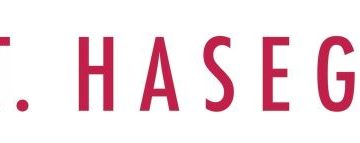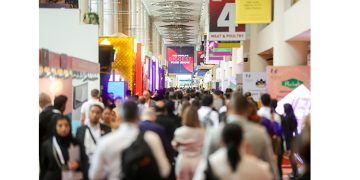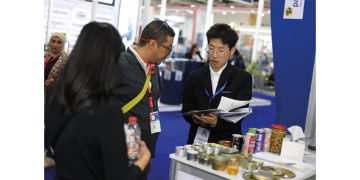Turkish Seafood Promotion Committee (STG) promotes Turkish seafood worldwide.
By the increasing population of world, the protein sources become deficient to cover the nutritional needs of human being. Urbanization and industrialization widen this gab more and more. In fact, sea farming is one of the environmentalist and economical solutions of this dilemma. Due to FAO 2012 Report, on 2050 the world population will be 9 billion people, a fact which will require the food production to be double. People will need qualified protein sources. This nutritional fact is also an economical fact of today’s world. The economic value of the seafood sector is increasing day by day. By being environmental, socialized and economical, aquaculture is one of the most important sustainable productions. All in all, the seafood sector in Turkey has constantly been growing and developing. Turkey has a great advantage in terms of fish and fishery products. Its geographical location is surrounded by seas on three sides and the country enjoys a great potential of seafood output not only by sea catch but also by aquaculture of Mediterranean species at the south-western coastline and freshwater farming varieties from numerous rivers, lakes and ponds. Owing to its sustainable production capacity, diversity of species, production & processing techniques meeting the EU standards and geographical proximity to target markets, Turkish seafood sector has also a strong export potential. Due to this potential, Turkish Seafood Promotion Committee (Su ürünleri Tanıtım Grubu, or STG locally) was established in 2008 with the purpose of promoting Turkish seafood products. Committee consists of a total of eleven members with the participation of the directors from the Board of Directors of the Aegean, Istanbul and Mediterranean Aqua and Animal Products Exporters’ Associations. The Committee intends to communicate the positive effects of fish on human health to the community, thus increasing the domestic consumption, export turnover and market share of the sector by implementation of marketing activities and participating in international seafood exhibitions. After 2008’s strong trend of consolidation, the Turkish seafood industry has realized significant investments in processing industries (cleaned, filleted, smoked and marinated) conforming to the EU Standards, enabling the sector to aim meeting modern consumer needs and trends. By adopting diversified processed seafood product portfolio (Gutted, scaled, gilled, filleted, IQF frozen), the Turkish seafood sector is seeking a more wide spread appeal in European cuisines along with the traditional fresh chilled varieties. Having reached a significant market share in the foreign markets supported by a continuously increasing production capacity, Turkish seafood Sector has become an important player in the worldwide aquaculture industry which has been characterized by being the fastest growing food industry sector in recent years. With increasing capitals, production amounts, laboring, Turkish Seafood has a growing reputation in worldwide.
Today Turkey is the biggest producer of Sea bream and Sea bass. All the players in this sector trying to get a big share from the export markets with value added sales. It is strongly believed that the Turkish seafood will be a widely recognized trademark in the world with its taste, quality, sustainable products and services and convenience forms for both customers and consumers. STG is responsible for marketing activities relating to Turkish seafood and aquaculture products globally, promoting fish-products as one of the cornerstones of the healthy Mediterranean diet. A clear aim of the marketing is to build awareness of the potential of Turkish seafood products, as well as diversifying beyond traditional markets by focusing on the greater EU, United States, the Russian Federation, UAE and Balkan countries.
Turkey’s story
Turkey is very large ‘peninsular’ surrounded on three sides by the Aegean Sea (to the West), Mediterranean (to the South) and Black Sea (to the North), with more than 300 natural and 130 artificial lakes largely fed by crystal clear winter snow of Anatolian Plateau and the Eastern Highlands, the Turkish seafood industry benefits from remarkably rich aquatic resources. With its 8,500 kilometers of coastline, Turkey is something of a dreamland for marine products. Its generous seas are the homeland of unique aquatic habitats which have been serving rich seafood specialties to countless civilizations for thousands of years. Now you are invited to discover the delicious taste of Turkish Seafood.
A fishmonger to the world
Turkey, whose fertile lands enjoy abundant water resources, has a well-developed seafood cuisine developed over many generations of the long, local history. In turn, the story of Turkish aquaculture began with an annual production of 3,000 tons in 1986, achieving 212,000 tons by 2012. Today Turkey is a fully integrated seafood and aquaculture producer, from hatcheries to fish farms, processing and packaging facilities, feed factories and plants producing packaging and technical equipment. Significant and steady growth is the hallmarks of the Turkish seafood sector. A capacity for sustainable production, species diversity, processing and production techniques and conformity to EU standards, combined with a close geographic proximity to target markets are the essential advantages that have generated significant market shares in foreign markets. As well as major aquaculture production of Mediterranean sea bream and sea bass, and also rainbow trout, there is significant production of bluefin tuna, common sea bream, dentex, blue spotted sea bream, sharp snout sea bream, and royal sea bass. The increasing range of seafood products has achieved a high reputation in worldwide markets. Beyond finfish farming there are also a wide range of shellfish varieties such as black mussels, baby clams, shrimp, and sepia exported from Turkey. A rapidly growing aquaculture sector in Turkey is obviously the driving force for the increase in exports. Clear demands from the markets for consumption of safe and quality aquatic products provides sound commercial motivation for the continued development of the product range and quality. Currently Turkey exports seafood to more than 80 countries worldwide. Turkish seafood sector has become a substantial industry, and today aquaculture is characterized by the fastest growth in the entire Turkish food sector.
Aquaculture at world standards
The Turkish Seafood sector has developed parallel to the implementation of environmentally friendly procedures embracing high technology R&D methods. Each species are fed by precision- made fish feeds conforming to formulas based primarily on natural ingredients. Turkish fish are farms are each in a unique habitat and subject o stringent traceability and quality systems. Consequently Turkish seafood is available year-round, and is widely regarded by the export markets for the health and taste characteristics of these Turkish products. Hatcheries equipped with advanced technologies Turkish aquaculture sector continues to intensify and diversify by investing in development of new species and modifying its systems and practices. Fish Hatcheries are used to cultivate and breed a large number of fish species in an enclosed environment. With the target of supplying high quality egg throughout the year and developing new species, Turkey Aquaculture hatcheries are equipped with advanced technologies. In addition to eggs supplied from various wild catch brood stocks with the techniques of natural and photoperiod all year long, genetic selections of species are also practiced.
Healthily growing juveniles
Fish go through various juvenile stages until reaching maturity. From eggs they hatch into larvae, which in turn carry a yolk-sack which is the source of continued nutrition. When the yolk-sack is depleted the tiny fish must be capable of feeding themselves. At this point they are know as fry and pass through various stages of development until grown to market-size. This development period is known at the juvenile stage and the smaller the fry the more sensitive, intensive care is required for satisfactory growth. One of the keys to the attractive taste of the Turkish products is the care at juvenile stage. Healthy, well- fed juveniles, result in a quality of flesh that has enabled a global acceptance of these products.
Special feeds for special fish
Manufactured feeds are an important part of modern commercial aquaculture, providing the balanced nutrition needed by fish. The feeds, in the form of granules or pellets, provide the nutrition in a stable and concentrated form, enabling the fish to feed efficiently and grow to their full potential. The special feeds used in Turkish Aquaculture sector are being produced by extruder technologies. The solubility period of the feed pellets is long enough for fish to recognize and consume the feed, thereby enabling stable nutrition. The high up-take rate of the feed by the fish is not only nature-friendly, but by totally consuming the feeds there is no organic waste to degrade an aquatic environment. The key components of fish feed are fishmeal, fish oil, vegetable proteins, cereal grains, vitamins and minerals.
On the spot control
The contemporary Turkish seafood sector is giving utmost importance to hygiene and quality. For assuring quality of Turkish Seafood; physical, chemical, microbiological and organoleptic parameters are being checked continuously. Shelf life, flesh quality and residue analyses are rigidly controlled. All components the production; packaging and processing materials, ice used in packaging are being analyzed as a part of our standard procedures.
Sustainability
Turkish Seafood considers the longterm vitality of harvested species and the well being of the seas and water sources. To maintain sustainable aquaculture production the local aquaculture sector is committed to:
• Environment practices: Sea and Wetland conservation; effective effluent management and water quality control; sediment control and sludge management; soil and water conservation; efficient fishmeal and fish oil use; responsible sourcing of brood stock and juvenile fish; Minimizing biodiversity and wildlife impact.
•Community practices: Establishing well-defined rights, aquaculture zones and responsibilities for farmers; regulatory compliance and effective enforcement; community involvement; worker safety, fair labor practices and equitable compensation.
• Sustainable farm management practices: Effective biosecurity and disease control systems, microbial sanitation, maintain global standards for hygiene, efficient and humane harvest and transport and traceability.
Traceability
In food processing the term traceability refers to the recording through means of barcodes, tags & other tracking media, all movement of product. In food processing software, traceability systems imply the use of a unique piece of data which can be traced through the entire production flow, linking all sections of the business, including suppliers & future sales through the supply chain. Turkish seafood sector using up to date and most efficient quality and process control systems for full integration to traceability from Brood Stock up to processed food such as; BRC, IFS, Global G.A.P, HACCP
Convenience
Turkish seafood industry has realized significant investments in processing facilities conforming to the EU standards over the last decade, enabling the sector to target meeting modern consumer needs and trends. Recognizing changing trends in cooking and eating habits which require ease of preparation and tangibly healthy products Turkish seafood has developed convenience-products that have a long shelf-life, year-round availability, and above all – attractive taste characteristics. By adopting diversified processed seafood product portfolio (Gutted, scaled, gilled, filleted, IQF frozen, Marinated, Ready to Eat), Turkish Seafood Sector is seeking a more wide spread appeal in world cuisines along with the traditional fresh chilled varieties.
The value of aquatic resources appreciated
Producers within the Turkish seafood industry are obliged to conform to quality systems that minimizes environmental impacts of their activities and increases the efficiency of farming. With this aim the entire sector follows the patterns of responsible usage of aquatic resources under the strict control of government organizations with full compliance to EU Regulations as well. Our offshore marine fish farming practices are one the world’s toughest legislation.















